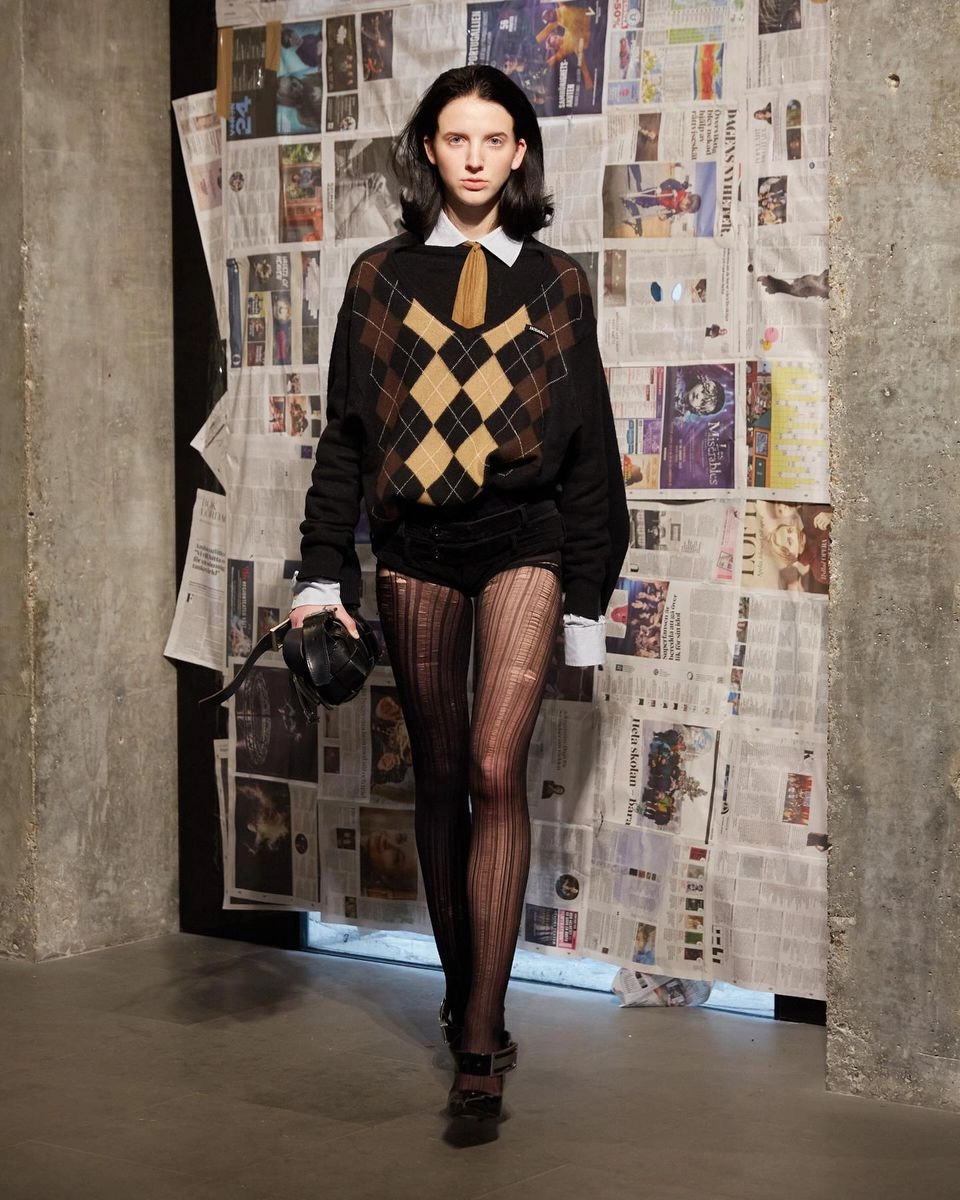Sofie Hagen: ‘Hashtag Blessed’

Sofie Hagen is smart, hilarious, and not afraid to take up space. Scan Magazine spoke to the latest stand-up star to come out of Denmark about fat acceptance, lessons in social justice, and a dead baby frog.
“Sometimes I don’t tell Danes when it’s going well,” says Sofie Hagen, who has just completed her third annual run at the Edinburgh Fringe Festival. “Here, I can go up and say to someone that I’m really happy because I got this TV show, but in Denmark I have to say that maybe I got this TV show but it’s just a small one. I have to talk it down a lot.” She is trying to explain the meaning of the Law of Jante, a description of Scandinavian group behaviour that frowns upon the showing off of individual success, which she thinks illustrates the Denmark of her youth well. She grew up with a single mother-of-two and an “emotionally abusive psychopath” grandfather. “It sounds tragic, but I remember it as quite good; I’m a really resilient person and, anyway, when you’re a child you don’t know how it’s meant to be,” she says. “I was poor in a Danish sense, but we were fine. At least back then we had a socialist government, and I had a very Danish upbringing in that there were never any expectations on me or thoughts of grandeur, no American ‘you can all be presidents’ – no, my mum always used to say, ‘when you become a single mother…’. There was never any pressure.”
That she ended up finding her voice as a stand-up comedian is something she takes very little credit for herself. “It was never an option, never something anyone had mentioned you could do, especially as a girl. When I made jokes at school, the kids assumed I was weird, not funny; but when the boys did, they’d all laugh,” she recalls. “But then I started going to comedy shows and comedians started recognising me and saying ‘hey, you clearly want to do stand-up, that’s why you’re here’, and eventually someone told me, ‘on Tuesday you go up and do five minutes – you have to, this is silly and ridiculous’. I had to be forced into it.”
With the Law of Jante deeply ingrained into her psyche, she did not even believe that she was funny at the start. “I remember when I realised that maybe I was funny. It was about two years into doing stand-up, and I was sitting with my friend and said to her, ‘I think that maybe, after two years of audiences laughing a lot and other comedians telling me I’m good at this, that maybe they’re right; maybe I’m funny’.”
Educating and being educated
Hagen left Denmark for London in 2012 and performed extensively. The following year, she was rewarded with a One to Watch label from Time Out and the Laughing Horse New Act of the Year; she was the first ever woman to win. Since then, she has been consistently winning over audiences and critics alike, including five-star reviews of her first Edinburgh Fringe show, Bubblewrap , in 2015, and co-hosting duties of the podcast The Guilty Feminist in 2015 and 2016.
But while the journey may look straightforward to the outsider, it has required some soul searching for the comedian herself. She laughs when reminded of having previously said that she was ignorant before leaving her home country. “Oh yeah, it’s a continuous journey – it doesn’t feel like it ever slows down or stops. As soon as you start seeing sexism and racism and privilege, it becomes this never-ending spiral where you can always do and be better, always act and learn and read more. It’s not like there’s a place you can reach where you’re good enough,” she explains.
Today, she has a consultant with her when touring to prevent her from making problematic jokes and to continuously increase her social awareness. Her shows are all what she calls ‘anxiety safe’, meaning that no one in the audience will be picked at, as well as having disabled access and gender neutral loos. “I try not to use ableist terms or misrepresent what happened in history,” she says. “I care so much about mental health and social justice, and I’m always being completely honest. I am myself on stage and I want to talk about what I care about, and it just so happens to be politically charged topics.” Since moving on from The Guilty Feminist , Hagen has set up her own podcast called Made of Human – a project very close to her heart. “I have a bit of a problem with authority – I’m not good with having other people tell me what to do. I recently got involved with a podcast that a company paid me to do, and…” she yawns. It is just after 10.30am. “Sorry, I just woke up. They got to decide the name of the podcast, they gave me a script and I just wanted to tear it up and run! Made of Human is like a direct transaction between me and my listeners. If they can’t or don’t want to pay, they don’t – but if they want to and can, they do. That’s how it should be. It’s just me talking to another person, and it helps people. It’s the best format ever.”
The feedback she has received since setting up the podcast has been overwhelmingly positive, with endless listeners saying that it makes them feel less alone. “Everyone says exactly that: it makes me feel less alone, it makes me feel like I’m an OK person. I didn’t know that’s what the podcast was when I started it, but it’s the greatest gift – it’s extraordinary,” Hagen emphasises. “Plus, it educates me. I’ve had no straight, white men on, so I talk to a lot of people who know about oppression. We’re all being educated.”
Fat and blessed
A while back, Hagen shared a photo of her friend, Andrea, on Instagram along with a caption saying that she is the reason Hagen does what she does. “I went to university in Copenhagen and studied Russian for some reason, and I met Andrea. She was a proper activist, involved in all the important work. I knew nothing, so when she realised I was going to be a comedian and people would listen to me making self-deprecating jokes about being fat, she sat me down for a chat,” says Hagen. “She taught me about the correlation between diet culture and capitalism, how the myth of thin equals beautiful isn’t reality, how it’s sold to us by corporations as part of a billion-dollar industry. She opened my eyes to that.”
Today, Hagen is known as a fat acceptance advocate. As she stopped struggling with her body, she explains, she learnt to be angry instead. “It’s all political now. We can’t keep making it about fat people telling their sad fat stories; it’s about holding people accountable for doing this to young girls. This isn’t about health, that’s a derailment tactic – this is about fat people being treated well, being paid the same and treated as human beings. It has to change now.”
A fat person with impeccable timing and buckets of charm, she is certainly wellread and more than a bit sharp. Her new show, Dead Baby Frog , is named after an experiment in 1872 that showed that if you put a frog into boiling water, it will jump straight out, but if you put it in and slowly turn up the temperature, it will allow itself to be boiled to death. “It’s a way for me to understand why my grandmother ended up in two abusive relationships in her life,” Hagen explains. She will be touring the show throughout the UK this autumn, and on to Denmark in 2018. “I feel so incredibly lucky that I get to do this and that people want to see me. I guess it’s what the kids call hashtag blessed,” she laughs.
By Linnea Dunne | Photos: Matt Crockett
Subscribe to Our Newsletter
Receive our monthly newsletter by email





